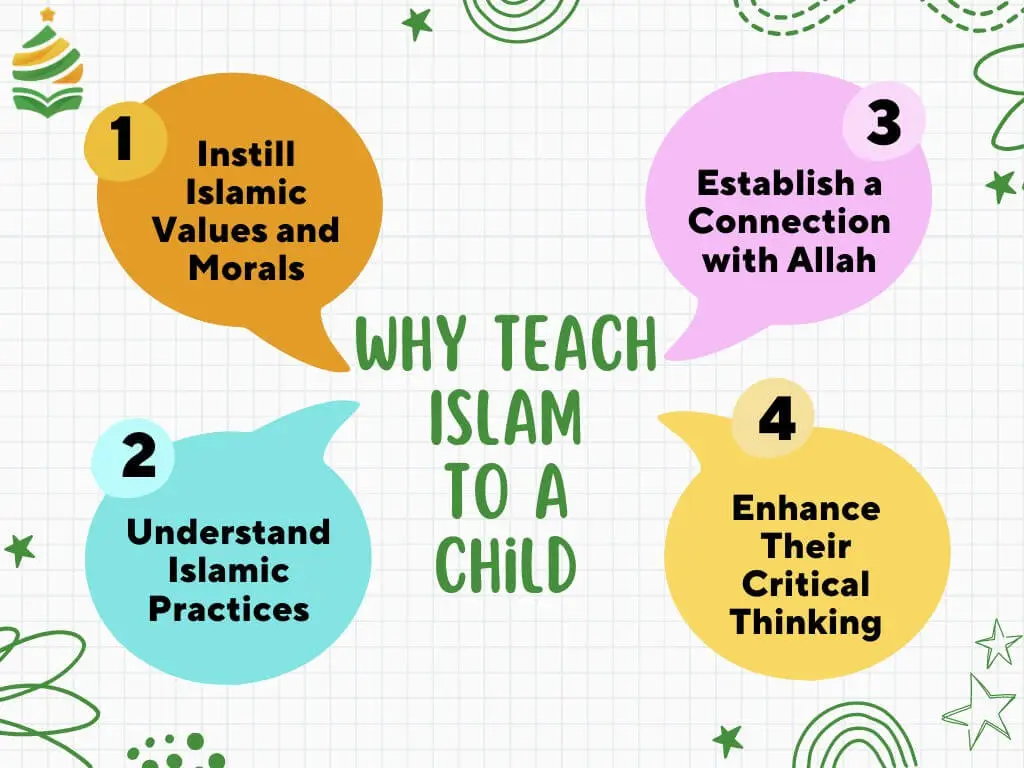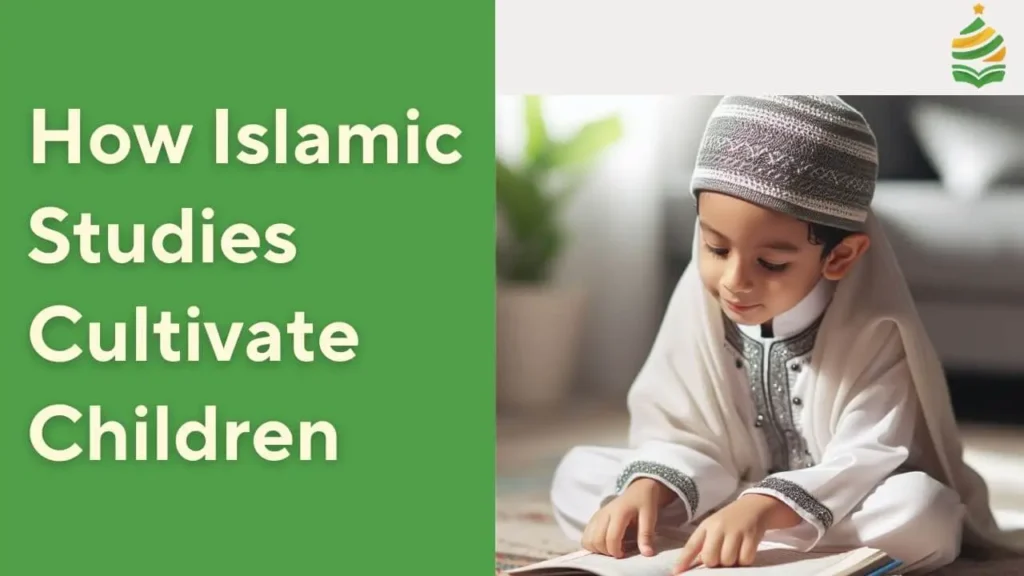The significance of teaching your child about Islam goes beyond teaching them the basics as it has numerous benefits. This article will guide you as a parent on how Islamic studies cultivate children in addition to the methods of teaching the Quran to your offspring so that you can reap those benefits in this world and the hereafter.
Why Teach Islam to a Child

As a parent, you need to realize the glorious benefits of teaching Islam to a child in order to encourage your children to be more enthusiastic and inquisitive about gaining Islamic knowledge.
1. Instill Great Values and Morals of Islam
Gaining Islamic knowledge leads your child to learn more about the great values and morals of Islam such as honesty, sincerity, and compassion along with many others. By following the teachings of the Quran and the Sunnah, your child is guaranteed to have an example that guides them on how to practice these morals in their everyday lives.
2. Cultivate an Understanding of Islamic Practices
Islamic studies serves as a foundation for your child to learn about the faith and practices of Islam. This is due to the fact that you help your child learn more about Allah, Prophet Muhammad, and other prophets in addition to forms of worship like prayer, fasting, Zakat, or charity and their virtues.
3. Establish a Strong Connection with Their Creator
Providing your child with an education that involves learning about their Creator and the religion of Islam leads to establishing a powerful connection between them and Allah. Learning about the Names and Attributes of Allah SWT will help your child know more about Allah and instill His love in their hearts.
4. Enhance Their Critical Thinking
Unlike traditional methods, If you incorporate innovative ways of teaching your child about Islam by avoiding the conventional spoonfeeding of information and using a variety of sources, you help your child to develop their critical thinking skills.
Instead, encourage the inquisitive nature of your child and discuss together the context and meaning of Quranic verses as well as the Hadiths of Prophet Muhammad PBUH. Inspire your child to find ways to apply them to their life.
5. Grant Them a Sense of Belonging
By teaching your kids about Islam, you grant them a sense of belonging through connecting them to their faith. This, in turn, creates a strong bond between them and other members of the Muslim community. Your kids develop a sense of belonging not only to the local community at the nearest mosque, Islamic center, or school but also to the global Muslim community on a larger scale.
6. Equips them with the Tools to Face the World
The World out there is getting more challenging by the minute and as a result, every parent needs to provide their child with the tools to cope with these challenges successfully. Islamic teachings give your child the tools to face the world and emerge unscathed because its beliefs and principles are suitable for every time and place.
How to Cultivate Your Child’s Development with Islamic Studies
- Establish a strong foundation by introducing them to Islamic teachings such as belief in Allah and His prophets as well as the 6 Pillars of Iman (Belief in Oneness of Allah (SWT), Belief in Existence of Angels, elief in The Books of Allah (SWT), Belief in All of Allah’s (SWT) Messengers, Belief in the Day of Judgment & Hereafter and Belief in the Qadhaa’ & Qadr).
- Incorporate a variety of methods like gamification (using interactive games) and stories to engage your child in the process of learning.
- Enhance your child’s concentration by organizing a schedule of consistent lessons and setting up a designated place for them that is free of distractions.
- Dedicate lessons to provide your child with an understanding of Islamic history to reinforce their Muslim identity.
Join Islamic Classes for Kids
Young learners aren’t deprived of the opportunity to access Islamic education, whether online or offline. As a matter of fact, teaching kids about Islam should constitute a high priority for parents as well as educators.
Islamic classes for kids offer a curriculum that extensively covers various Islamic topics. They are designed to provide an interactive learning environment for your child that fosters their critical and creative thinking skills as they are taught by qualified and experienced tutors.
Conclusion
Islamic studies for kids can help children develop a strong foundation in Islamic teachings and values. By providing age-appropriate lessons and activities, children can grow in their understanding and appreciation of their faith.
Important FAQs
Q1: Does religion affect child development?
Certainly, religion has a significant impact on child development since it nurtures their moral compass by teaching them Islamic values and morals. It also enhances their cognitive abilities and development such as critical thinking skills.
Q2: What are the Islamic values for children?
Countless Islamic values can be taught to children such as:
- Respect for their parents and elders
- Being Honest
- Acting with Kindness and compassion
- Practicing Patience and Perseverance
- Gratitude and Thankfulness
Q3: What does Islam say about child development?
Children are viewed in Islam as the building block for the Muslim community which must be carefully nurtured and raised. Therefore, Islam stresses the importance of child development in physical, mental, emotional, and spiritual aspects.
Islam urges Muslim parents to focus on educating their kids in every manner that is possible as well as giving them guidance and discipline.

